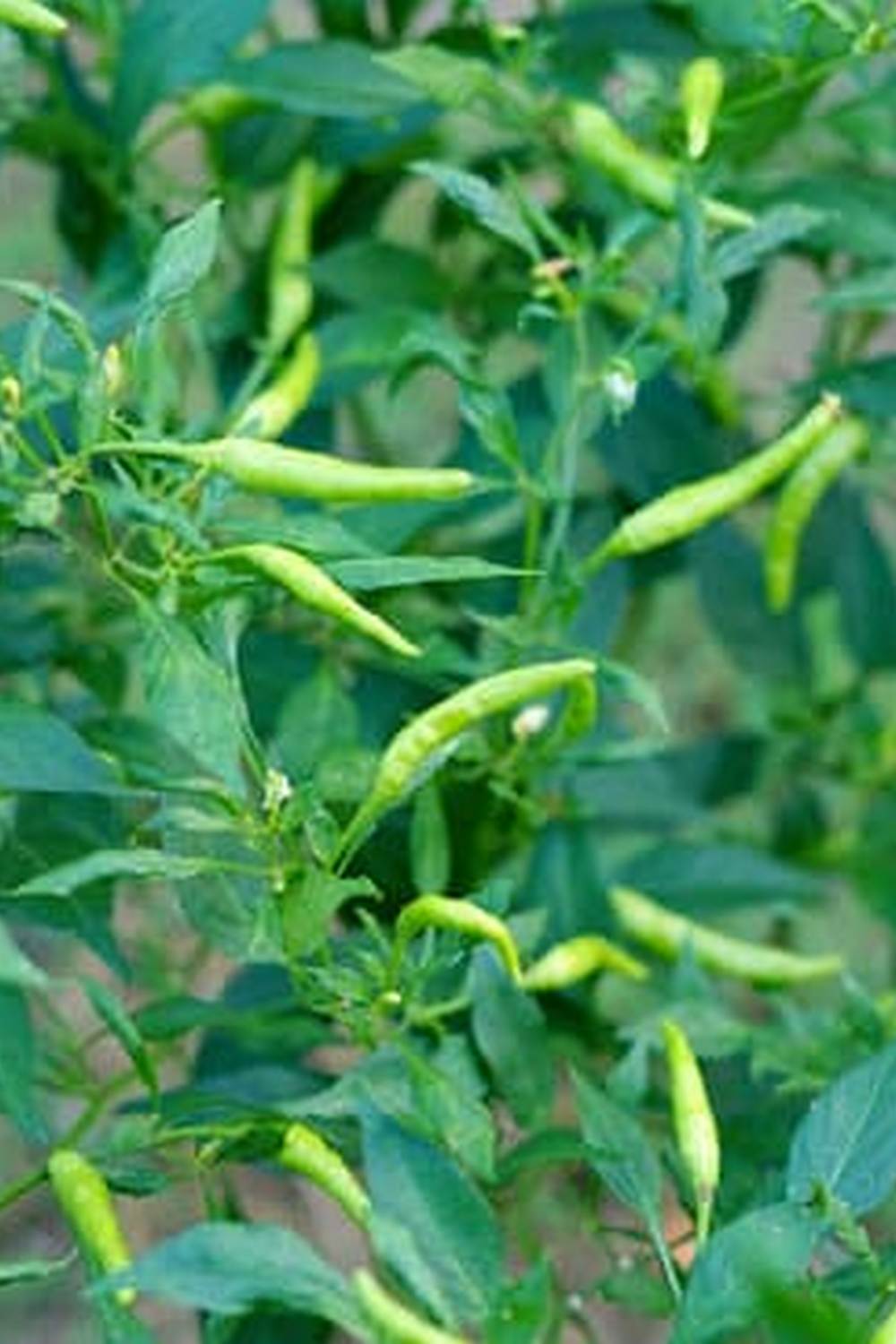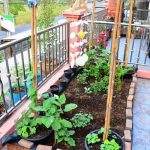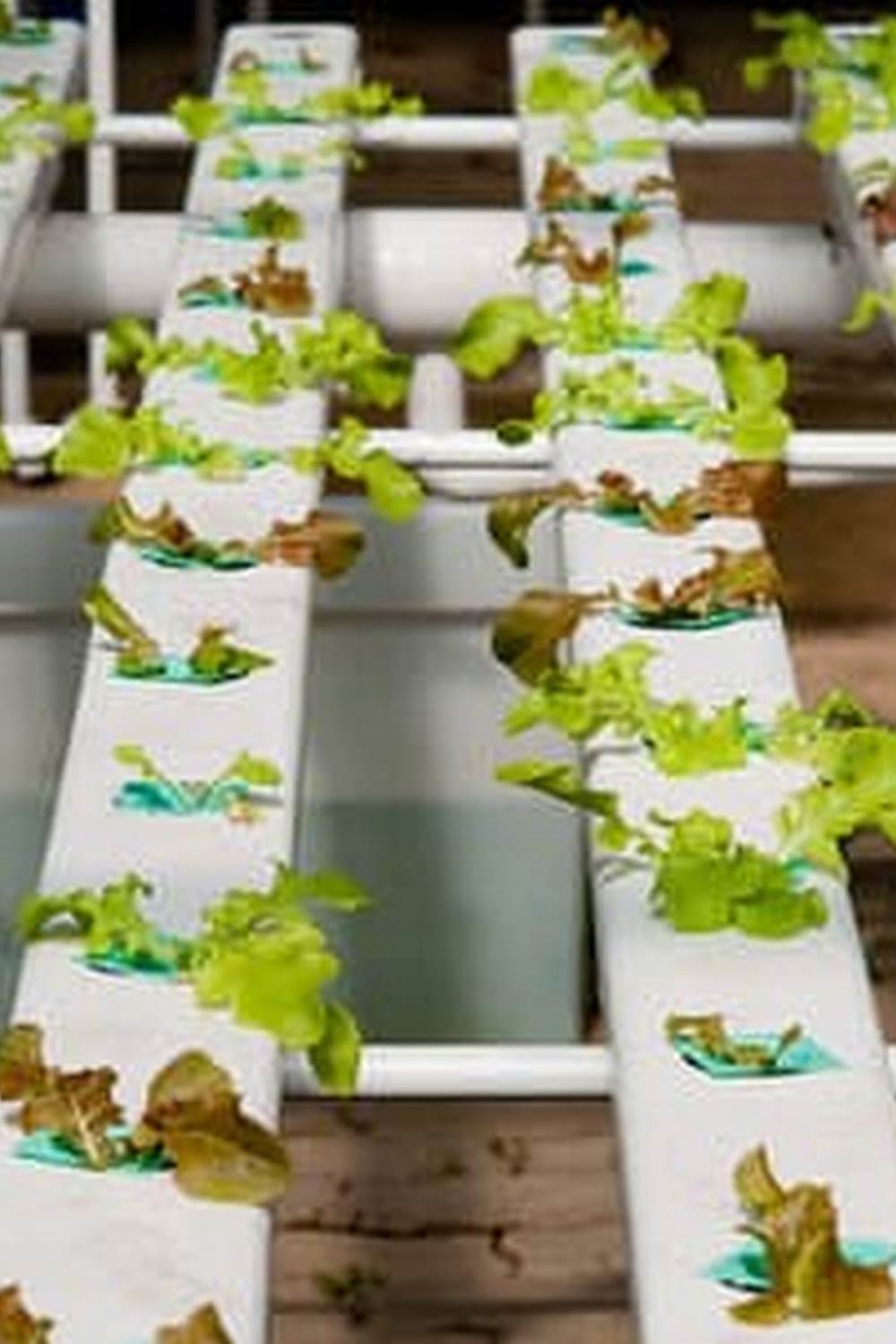Are you a Tennessee gardener looking to maximize your harvest throughout the year? Understanding the importance of a Tennessee vegetable gardening calendar is essential for planning and maintaining a successful garden. By following a detailed schedule tailored to the unique climate and soil conditions of Tennessee, you can ensure that your vegetables thrive and produce bountiful yields.
Tennessee’s diverse climate and soil conditions play a significant role in determining which vegetables grow best in the state. From the humid subtropical climate in the west to the more temperate climate in the east, Tennessee offers a range of growing conditions for various vegetable varieties. Knowing how to adapt your gardening practices to these conditions is crucial for success.
In this article, we will delve into the specific climate and soil conditions present in Tennessee, highlighting the best vegetable varieties that flourish in this environment. Stay tuned for a seasonal planting guide, soil preparation tips, pest and disease management strategies, harvesting techniques, succession planting methods, and valuable resources for Tennessee gardeners. Get ready to take your vegetable garden to new heights with our comprehensive Tennessee Vegetable Gardening Calendar.
Climate and Soil Conditions in Tennessee
Tennessee, with its diverse topography and varying elevations, experiences a range of climate and soil conditions that can impact vegetable gardening. The state’s weather patterns exhibit distinct seasonal changes, with hot summers, mild winters, and sufficient rainfall throughout the year.
This unique climate creates both opportunities and challenges for gardeners hoping to grow a successful vegetable garden. Additionally, Tennessee boasts various soil types, including clay, loam, and sandy soils, each with its own set of characteristics that can influence plant growth.
To effectively plan your Tennessee vegetable garden, it is essential to understand how the state’s climate and soil conditions can affect your crops. Certain vegetables may thrive in specific regions of Tennessee due to variations in temperature and precipitation levels.
For example, heat-loving plants like tomatoes and peppers tend to do well in the warmer regions of the state during the summer months. Conversely, cool-season crops such as lettuce and spinach may thrive better in cooler areas or during the fall and spring seasons.
When preparing your soil for planting in Tennessee, it is crucial to consider the soil type present in your garden area. Different vegetables have varying nutrient requirements and drainage needs based on the type of soil they are planted in.
To ensure optimal growth and productivity of your crops, conduct a soil test to determine its pH level and nutrient content. Based on these results, you can amend the soil accordingly by adding organic matter or fertilizers to create an ideal growing environment for your Tennessee vegetable garden.
- Understand your region’s climate patterns
- Identify the soil type in your garden area
- Conduct a soil test before planting
Best Vegetables to Grow in Tennessee
When planning a Tennessee vegetable gardening calendar, it’s crucial to choose the right vegetables that are well-suited for the state’s unique climate and soil conditions. Tennessee’s climate is characterized by hot summers and mild winters, with varying temperatures across different regions of the state. Additionally, Tennessee has diverse soil types ranging from clay to loam to sandy soils, which can affect plant growth.
One of the top vegetables to grow in Tennessee is tomatoes. With proper care and maintenance, tomatoes can thrive in Tennessee’s warm climate and produce an abundant harvest. Varieties such as ‘Better Boy,’ ‘Celebrity,’ and ‘Cherokee Purple’ are popular choices among Tennessee gardeners due to their flavor and adaptability to the state’s growing conditions.
Another vegetable that flourishes in Tennessee is bell peppers. Whether you prefer green, red, or yellow peppers, these versatile vegetables do well in Tennessee’s long growing season. Varieties like ‘California Wonder’ and ‘Sweet Chocolate’ are excellent choices for home gardeners looking to add some color and flavor to their dishes straight from the garden. Peppers require full sun and fertile, well-drained soil to thrive in a Tennessee garden.
Cucumbers are also a favorite for many Tennessee gardeners due to their ease of cultivation and high yield potential. Varieties like ‘Marketmore’ and ‘Straight Eight’ are popular choices for fresh eating or pickling purposes. Cucumbers thrive in warm weather and need consistent moisture throughout the growing season, making them a great addition to a Tennessee vegetable garden calendar for those looking for a refreshing summer crop.
Seasonal Planting Guide
In Tennessee, having a well-planned vegetable gardening calendar is essential to maximize your yield and ensure a successful harvest. By following specific planting dates tailored to the state’s unique climate and soil conditions, you can optimize the growth and production of your vegetables throughout the year.
Spring Planting
Spring in Tennessee typically starts around March, making it an ideal time for planting cool-season vegetables such as lettuce, spinach, kale, peas, and carrots. These vegetables thrive in the moderate temperatures of spring and can be harvested before the heat of summer sets in. It is crucial to plant these early spring crops as soon as the soil is workable and not too wet to avoid any potential setbacks.
Summer Planting
As the temperature rises in Tennessee during the summer months, it is time to switch to warm-season vegetables like tomatoes, peppers, cucumbers, squash, and okra. These vegetables require warm soil to germinate and grow successfully. Planting them after the last frost date in your area, which typically falls between late April and early May in most parts of the state, will ensure optimal growth during the warmer months.
Fall Planting
Fall in Tennessee offers a second chance for planting certain cool-season crops that can withstand lower temperatures. Vegetables like broccoli, cauliflower, Brussels sprouts, and radishes do well when planted in late summer or early fall for a fall harvest. Take advantage of this cooler season by extending your gardening calendar with these delicious options that thrive during this time. Be sure to plant them with enough time to mature before winter frosts arrive.
By following these specific planting dates for each season based on the Tennessee vegetable gardening calendar, you can enjoy a bountiful harvest year-round while working with nature’s rhythms and maximizing your garden’s productivity. From spring through fall, there are plenty of opportunities to grow an array of fresh produce by aligning your planting schedule with the state’s climate patterns. Happy gardening.
Soil Preparation Tips
Properly preparing your soil is essential for successful vegetable gardening in Tennessee. The state’s unique climate and soil conditions require specific attention to ensure that your plants have the best chance to thrive. Here are some key tips on how to prepare your soil effectively:
- Test Your Soil: Before planting your vegetables, it’s important to test your soil to determine its pH levels and nutrient content. You can purchase a soil test kit from your local garden center or contact your county’s extension service for assistance.
- Add Organic Matter: Tennessee soils can often benefit from the addition of organic matter, such as compost or well-rotted manure. Incorporating organic matter into your soil helps improve its structure, drainage, and fertility.
- Consider Cover Crops: Cover crops like clover or vetch can help improve soil health by adding nutrients and preventing erosion. Planting cover crops during the off-season can also help suppress weeds and attract beneficial insects.
In addition to these tips, it’s important to regularly monitor the moisture levels of your soil and ensure that it is well-draining to prevent waterlogged conditions. By taking the time to properly prepare your soil, you’ll set the foundation for a successful vegetable garden in Tennessee.
Remember that each season may require different approaches to soil preparation based on the specific needs of the vegetables you plan to grow. Consulting the Tennessee vegetable gardening calendar for guidance on when to address these tasks can help you stay organized and maximize the productivity of your garden throughout the year.
Pest and Disease Management
One common pest that Tennessee vegetable gardeners may encounter is the tomato hornworm. These large green caterpillars can decimate tomato plants if not controlled. To prevent infestations, regularly inspect your plants for signs of these pests and handpick them off when found. Additionally, introducing natural predators like beneficial insects can help keep populations in check.
Another widespread issue in Tennessee gardens is powdery mildew, a fungal disease that affects many types of vegetables. To prevent powdery mildew, ensure good air circulation around your plants by spacing them out properly and avoiding overhead watering. If the disease does appear, treat it with fungicidal sprays or organic remedies like neem oil to halt its spread and protect your crops.
By staying vigilant, practicing good garden hygiene, and promptly addressing any pest or disease issues that arise, you can maintain a healthy and productive vegetable garden in Tennessee. Utilizing organic methods whenever possible will help minimize the impact on beneficial insects and pollinators while still effectively managing unwanted pests and diseases. Remember to consult local extension services or gardening organizations for specific guidance tailored to Tennessee’s unique growing conditions.
Harvesting and Storage Tips
When it comes to vegetable gardening in Tennessee, knowing when and how to harvest your produce is crucial for achieving optimal freshness and storage. Properly harvesting your vegetables at the right time can significantly impact their flavor and nutritional content. Additionally, knowing the correct techniques for storing your harvested vegetables can help prolong their shelf life and minimize waste.
Harvesting Tips
One essential tip for harvesting vegetables is to do it at the right time. For example, tomatoes should be picked when they are fully ripe but still firm, while cucumbers should be harvested before they become overripe and bitter. It’s also important to use sharp tools, like pruners or scissors, to avoid damaging the plants during harvest. When harvesting leafy greens like lettuce or spinach, consider picking outer leaves first to allow inner leaves to continue growing.
Storage Tips
Proper storage is key to preserving the freshness of your harvested vegetables. Many vegetables, such as carrots and beets, can be stored in a cool, dark place like a cellar or refrigerator crisper drawer. Onions and garlic should be stored in a dry area with good air circulation to prevent them from spoiling prematurely.
Some vegetables can even be stored by freezing or canning for long-term use. It’s important to research specific storage requirements for each vegetable variety you grow in your Tennessee garden.
Additional Tips
To ensure that your harvested vegetables retain their flavor and nutrients, avoid washing them until you are ready to use them. Excess moisture can cause certain veggies to spoil faster or lose their crispness. Consider investing in proper storage containers like breathable bags or bins with ventilation holes to maintain optimal humidity levels. By following these tips on harvesting and storage, you can enjoy the fruits of your labor well beyond the growing season in Tennessee.
Succession Planting Techniques
Succession planting is a valuable technique for Tennessee gardeners looking to make the most out of their growing season. By staggering plantings of the same crop or different varieties, you can ensure a continuous harvest throughout the season. This method not only maximizes your yield but also helps avoid gluts of produce that can be challenging to manage all at once.
One approach to succession planting is to sow seeds of a particular vegetable at regular intervals, such as every two weeks, to extend the harvest period. For example, with fast-growing crops like lettuce or radishes, you can start planting early in the spring and continue sowing seeds until late summer for a constant supply of fresh produce. This strategy works well for vegetables that have relatively short growing seasons and can tolerate cooler or warmer temperatures.
Another way to utilize succession planting is by replacing harvested crops with new ones that thrive in the upcoming season. For instance, after harvesting your early-season spinach or peas, you can follow up with heat-loving plants like tomatoes or peppers. Planning ahead and selecting complementary crops based on their growth requirements and maturity dates are key factors in successful succession planting in Tennessee’s variable climate.
| Vegetable | Succession Planting Interval |
|---|---|
| Lettuce | 2 weeks |
| Radishes | 2-3 weeks |
| Tomatoes | 4-6 weeks |
By incorporating succession planting techniques into your Tennessee vegetable gardening calendar, you can enjoy a more prolonged harvest period and a wider variety of fresh produce from your garden. Experimenting with different combinations of crops and timing your plantings according to your local climate and frost dates will help you optimize space and resources while reaping the rewards of homegrown fruits and vegetables throughout the year.
Remember to keep track of your planting schedule and make adjustments as needed based on weather conditions and crop performance for a successful gardening experience in Tennessee.
Resources for Tennessee Gardeners
In conclusion, having a Tennessee Vegetable Gardening Calendar is essential for any gardener in the state to ensure successful harvests year-round. By understanding the unique climate and soil conditions of Tennessee, gardeners can make informed decisions on which vegetables to grow and when to plant them. The seasonal planting guide provided in the calendar offers specific dates for planting each vegetable, taking into account the nuances of Tennessee’s weather patterns.
Furthermore, proper soil preparation is key to a thriving vegetable garden in Tennessee. By following the soil preparation tips outlined in the gardening calendar, gardeners can create optimal growing conditions for their plants. Additionally, learning about pest and disease management techniques will help protect crops from common threats, ensuring a healthy and bountiful harvest.
Lastly, utilizing succession planting techniques as recommended in the Tennessee Vegetable Gardening Calendar can help maximize yields throughout the growing season. Harvesting and storage tips provided in the calendar also guide gardeners on how to pick vegetables at their peak freshness and properly store them for future use.
By utilizing the resources available for Tennessee gardeners, such as links to local gardening organizations and extension services, individuals can further enhance their knowledge and skills in vegetable gardening, leading to a more gratifying gardening experience overall.
Frequently Asked Questions
What Vegetables Are Good to Grow in Tennessee?
In Tennessee, vegetables like tomatoes, peppers, squash, cucumbers, corn, and green beans thrive well due to the warm climate and fertile soil. These crops are popular choices for many gardeners in the state.
Which Month Is Best for Vegetable Garden?
The best month to start a vegetable garden in Tennessee is typically April. By this time, the risk of frost has passed, and the soil has warmed up enough for seeds to germinate and plants to grow effectively. Starting in April allows for a longer growing season throughout the summer.
How Long Is the Growing Season in Tennessee?
The growing season in Tennessee usually lasts from late April or early May until October. This gives gardeners a good amount of time to plant, nurture, and harvest their crops before the colder temperatures set in again. Some cold-hardy vegetables may even survive into late fall with proper care and protection.

If you’re looking to get into vegetable gardening, or are just looking for some tips on how to make your current garden better, then you’ve come to the right place! My name is Ethel and I have been gardening for years. In this blog, I’m going to share with you some of my best tips on how to create a successful vegetable garden.





